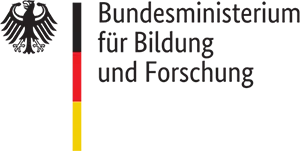On Tuesday, 19 September 2023, the Merian Institute for Advanced Studies in Africa (MIASA) started its 3-day conference on “Sustainable Governance in a Time of Global Flux: Issues, Concepts and Future Directions”. The Merian Institute for Advanced Studies in Africa (MIASA) is an institute under the College of Humanities, University of Ghana. It is based on a collaboration between the University of Ghana and four German partners: the University of Freiburg (leading house), the Goethe University Frankfurt, the German Institute for Global and Area Studies (GIGA), and the German Historical Institute Paris (GHIP). It aims at making African thinking increasingly relevant in academic debates. The Institute is jointly sponsored by the German Federal Ministry of Education and Research (BMBF) and the University of Ghana.
The institute is dedicated to the issue of “Sustainable governance” in an interdisciplinary perspective. It was launched with an inaugural conference almost exactly five years ago in 2018. As stated in the welcome remarks by the two MIASA directors, Dr. Grace Diabah and Dr. Susann Baller, since the start of its fellowship programme in 2019, MIASA has hosted more than 100 fellows at its premises. This conference, which marks the middle of MIASA’s six year “main phase” of German government funding, is meant to bring together different MIASA fellow generations and MIASA’s partners as well as other researchers from across the globe to reflect on MIASA’s overarching topic of sustainable governance.
As the two directors say, the aim of the current conference is to elaborate on the fellows’ research on MIASA’s main thematic corridors – peace, democracy and sustainability transformation – as well as to its intersectional topics, which include migration, land governance, restitution, African cities and human rights, and to explore the interconnections and interconnectedness between them. Furthermore, the conference addresses the question of which role governance plays for them and which forms, practices and expressions governance takes, as well as question, rethink and reinvent concepts, methods and epistemologies of sustainability and sustainable governance. These also speak to recent transformations and disruptions across the world as a result of the COVID-19 pandemic and Russia’s invasion of Ukraine have generated lively debates about the governance of economies, growing inequalities and the autonomy of economic policy making across Africa and indeed the globe.
The conference is attended by representatives of the German Federal Ministry of Education and Research (BMBF) and the Project Managing Office (DLR) for the Merian Centres. In her welcome remarks, Dr. Christina Norwig (BMBF) emphasizes that challenges such climate change or peace building do not stop at national borders but that such societal challenges have to be carried out internationally. She acknowledges that through MIASA, researchers, who would otherwise never have met, contribute to this discourse. She congratulates MIASA’s project partners for this achievement and expresses her gratitude to the University of Ghana for making this endeavour possible.
The University of Ghana’s commitment to the institute’s continuing success is emphasized in the welcome address by Acting Vice Chancellor Professor Gordon Awandare. He states that the University of Ghana will do everything to sustain the project after the current funding by the German government and stresses the university’s interest in further collaboration with the German partners.
The German Ambassador to Ghana, His Excellency Daniel Krull, in his welcome address also reiterates how research in the humanities and social sciences has become more relevant than ever before. He acknowledges MIASA’s contribution to important societal discourses, such as the restitution of African artefacts, and stresses the excellent relationship of MIASA with the German Embassy in Accra.
MIASA’s three-day Midterm conference hosts a total of six panels and three roundtables with speakers from Ghana, Germany as well as other parts of Africa, Europe and the rest of the world. Keynote addresses are given by Professor Elisio Macamo from the University of Basel and member of MIASA’s Academic Avisory Board as well as Professor Dzodzi Tsikata from SOAS, University of London, formerly Director at Institute of African Studies at the University of Ghana, and co-initiator of MIASA, founding director and former chair of MIASA’s Executive Council. Around one hundred participants are attending the conference onsite – amongst them representatives of MIASA’s Executive Council – including its partners from Germany – and Academic Advisory Board members, fellows and alumni of MIASA, as well as faculty, staff and students from University of Ghana. For more information on MIASA: https://www.ug.edu.gh/mias-africa/
You are currently viewing a placeholder content from X. To access the actual content, click the button below. Please note that doing so will share data with third-party providers.
More Information


